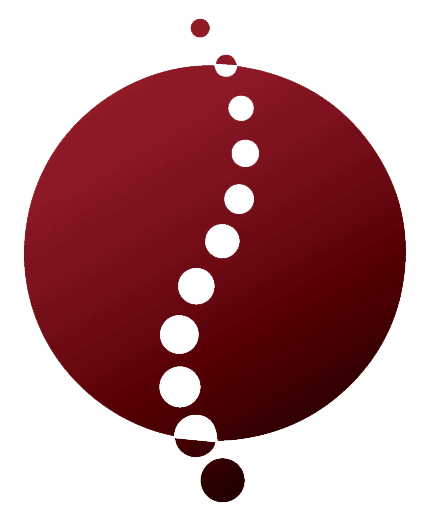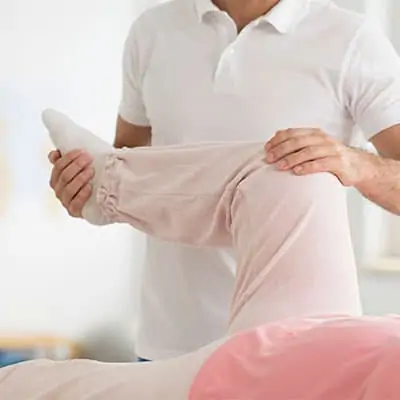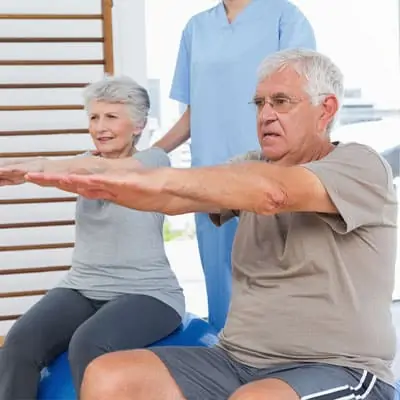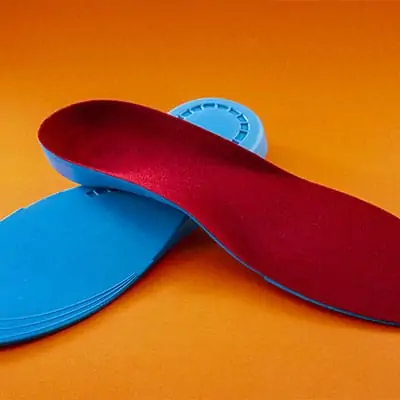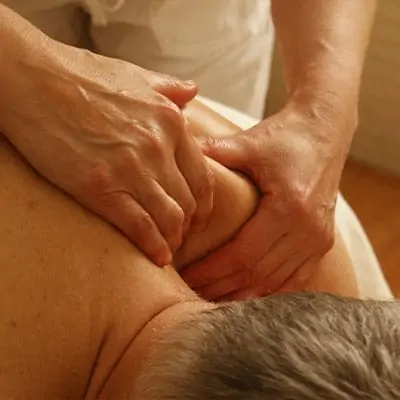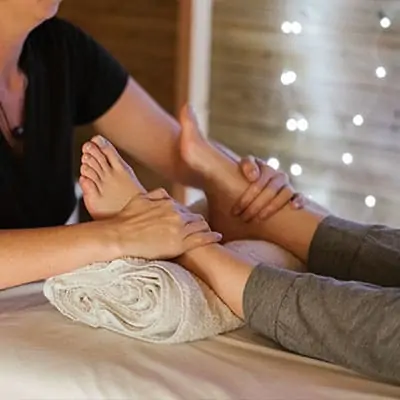At Cambridge Physiotherapy & Rehab Center, we offer effective Achilles tendinitis treatment to restore your strength and mobility. Our dedicated team provides personalized, research-backed care using the latest treatment approaches to alleviate discomfort and promote optimal activity levels. Trust in our expertise and commitment to patient wellness and recovery.
Understanding Achilles Tendinitis
Achilles tendinitis is an overuse injury affecting the Achilles tendon, the band of tissue that connects calf muscles at the back of the lower leg to your heel bone. Common among runners and athletes who engage in sports that involve a lot of running, jumping, or sudden starts and stops, it can also afflict individuals who suddenly increase the intensity or duration of their exercises.
Symptoms and Their Impact
The primary symptoms of Achilles tendinitis include:
- Pain Along the Achilles Tendon: Often described as a mild ache in the back of the leg or above the heel after running or other sports activity.
- Tenderness and Stiffness: Especially in the morning, which tends to improve with mild activity.
- Severe Pain: That may occur after prolonged running, stair climbing, or sprinting.
- Swelling: Which can be a sign of more severe tendinitis.
What Triggers Achilles Tendinitis?
Several factors can contribute to the development of Achilles tendinitis, including:
- Repetitive Stress to the Tendon: This stress can occur from too much running, especially without adequate conditioning.
- Sudden Increase in Physical Activity: A rapid increase in the intensity or duration of exercise can strain the tendon.
- Tight Calf Muscles: When calf muscles are tight, they can pull on the Achilles tendon, causing stress and strain.
- Bone Spurs: Extra bone growth where the Achilles tendon attaches to the heel can rub against the tendon and cause pain.
Personalized Physiotherapy Treatment for Achilles Tendinitis
At Cambridge Physiotherapy & Rehab Center, our treatment for Achilles tendinitis is designed to relieve pain, reduce inflammation, and strengthen the tendon to prevent future injuries.
Thorough Assessment
Your treatment begins with a comprehensive assessment to gauge the severity of the tendinitis and understand your unique physical condition and lifestyle needs.
Advanced Treatment Plans
Our approach may include:
- Targeted Exercise Programs: Strengthening and stretching exercises to enhance flexibility in the calf muscles and the Achilles tendon.
- Manual Therapy: Hands-on techniques to reduce pain and improve mobility in the tendon and surrounding tissues.
- Ice/Heat Therapy: These modalities can be used to promote recovery and reduce inflammation in the affected area.
Our Comprehensive Services
In addition to Achilles tendinitis treatment, Cambridge Physiotherapy & Rehab Center in Cambridge offers a broad spectrum of services to support your overall health and well-being. Whether you’re seeking to prevent injuries, rehabilitate from an injury, or improve your athletic performance, our team is here to provide care and guidance.
Choose Cambridge Physiotherapy & Rehab Center for Achilles Tendinitis Care
Selecting Cambridge Physiotherapy & Rehab Center for your Achilles tendinitis treatment in Cambridge means choosing a path to recovery supported by a team dedicated to achieving the best possible outcomes for you. Our holistic approach, combining state-of-the-art treatments with personalized care, ensures you receive the comprehensive support you need to recover and prevent future injuries.
Our Commitment:
- A Team of Dedicated Professionals: Our team is passionate about helping you overcome Achilles tendinitis and return to your favourite activities pain-free.
- Advanced Treatment Modalities: Leveraging cutting-edge physiotherapy techniques and technologies, we tailor our treatments to meet your individual needs and goals.
- A Holistic Approach: Focused on not just alleviating symptoms but also addressing the root causes of Achilles tendinitis for lasting health and mobility.
Take the First Step Toward Recovery
Don’t let Achilles tendinitis hold you back from enjoying an active lifestyle in Cambridge. Reach out to Cambridge Physiotherapy & Rehab Center today to begin your journey to recovery with a team that cares deeply about restoring your strength and flexibility.
Find Relief From Common Ankle Conditions
|
|
Achilles Tendinitis Treatment Cambridge FAQs
How Long Does Achilles Tendinitis Treatment Take?
The duration of Achilles tendinitis treatment varies depending on the severity of the condition, the specific treatment approach, and the individual’s response to therapy. In general, mild to moderate cases may see significant improvement within a few weeks to a few months of consistent physiotherapy and adherence to prescribed exercises and lifestyle modifications. More severe cases, especially those requiring more advanced interventions or recovery from tendon damage, may take several months to fully recover. A personalized treatment plan and close monitoring by a healthcare professional can help optimize the recovery timeline.
Are There Any Long-Term Effects of Achilles Tendinitis?
If properly treated, many individuals recover from Achilles tendinitis without long-term effects. However, without adequate treatment, Achilles tendinitis can lead to chronic pain, recurring injuries, and permanent changes in the tendon structure. In some cases, chronic tendinitis can result in degeneration of the tendon (tendinosis), which weakens the tendon and makes it more prone to tears and ruptures. Implementing preventive measures, such as regular stretching, strength training, proper footwear, and gradual increases in activity levels, can help mitigate the risk of long-term complications from Achilles tendinitis.
Can Exercise Make Achilles Tendinitis Worse?
Certain types of exercise, particularly those that place excessive stress on the Achilles tendon, can exacerbate Achilles tendinitis. High-impact activities like running, jumping, and abrupt starts and stops can increase tendon strain and inflammation if performed without proper conditioning, technique, or during an active phase of tendinitis. However, specific exercises designed to strengthen and stretch the calf muscles and improve tendon flexibility can be beneficial in the recovery process. It’s essential to consult with a healthcare professional to determine the appropriate exercises for your condition and to ensure they are performed correctly.
Can Achilles Tendinitis Heal on Its Own?
While mild cases of Achilles tendinitis can improve with rest and self-care measures such as ice, and elevation, this condition often requires more structured treatment to heal effectively and prevent recurrence. Without addressing the underlying causes, such as biomechanical issues or inadequate muscle strength and flexibility, Achilles tendinitis may become a chronic problem. Professional guidance can help ensure that you’re adopting the correct strategies for recovery and rehabilitation, reducing the risk of further injury and helping the tendon repair properly.
Cambridge Physiotherapy & Rehab Center
895 Langs Dr Unit #2, Cambridge, ON N3H 5T6, Canada
(519) 219 5428
Hours:
Monday: 9 AM–5 PM
Tuesday: 9 AM–8 PM
Wednesday: 9 AM–5 PM
Thursday: 9 AM–8 PM
Friday: 9 AM–5 PM
